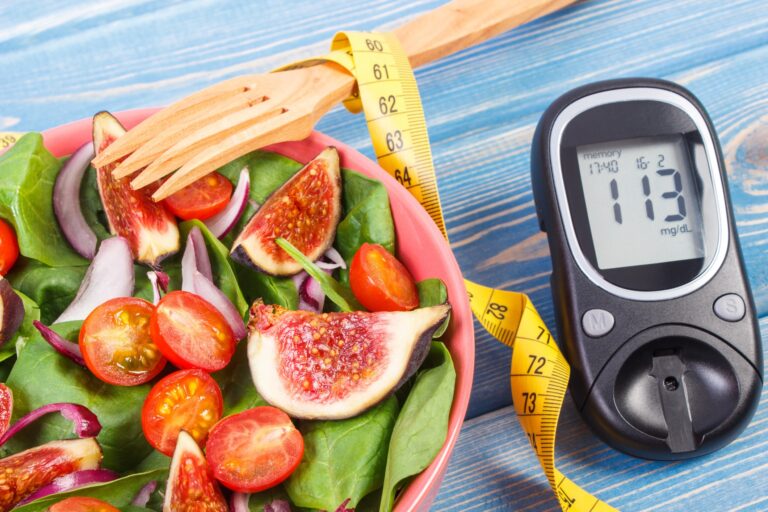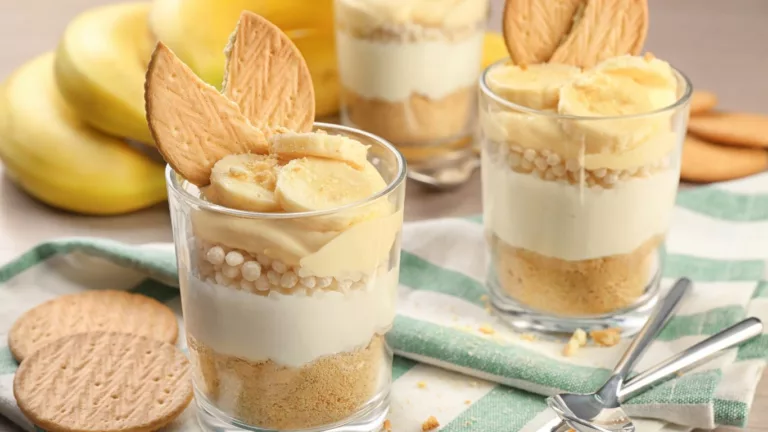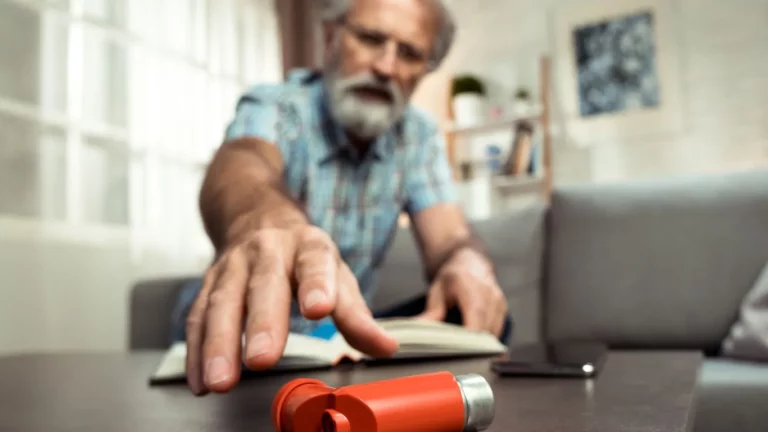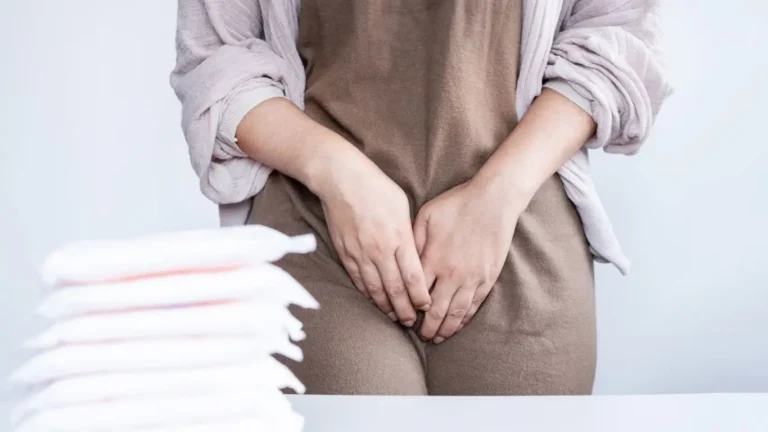Ultimate Guide: 7 Best Hydration Strategies for GERD Relief
As someone who’s dealt with GERD and helped countless patients manage it, I can tell you that the path to relief involves more than just medication. One of the key factors in reducing GERD symptoms is hydration—yes, you heard me right. The best hydration strategies for GERD can play a huge role in keeping your digestive system happy and reducing reflux episodes. In this post, we’ll dive into why hydration matters, how it can help soothe your symptoms, and what drinks you should (and shouldn’t) be reaching for. So, grab a glass of water, and let’s get into it!
The Importance of Hydration for GERD Relief
When you have GERD, your stomach acid is constantly trying to escape upwards, leading to the dreaded heartburn, discomfort, and sometimes even pain. One of the easiest ways to support your body in keeping that acid where it belongs is staying properly hydrated. Water, in particular, is a champion when it comes to neutralizing stomach acid and keeping your digestive tract functioning smoothly. But it’s not just about drinking more liquids—there’s a science behind what you drink and when.

How Hydration Helps to Soothe GERD Symptoms
Ever wonder why a big glass of water feels like it can help settle your stomach when GERD strikes? There’s a reason. Drinking water can dilute stomach acid, making it less likely to irritate your esophagus. This simple act can provide immediate relief from that burning sensation. Also, staying hydrated helps your body produce enough mucus in the stomach lining, acting as a barrier to acid. It’s like giving your body a little cushion against the harsh effects of reflux!
Best Hydration Practices for GERD Sufferers
Now that we know hydration is important, let’s talk about the best hydration practices for GERD sufferers. The key here is consistency—drinking water throughout the day, not just when you’re feeling thirsty or experiencing reflux, is crucial for managing GERD symptoms long-term.
1. Drink Water Regularly, But Not in Large Sips
It’s tempting to gulp down water when you’re thirsty or when your GERD symptoms flare up, but that can sometimes cause more harm than good. Large sips or drinking too quickly can actually trigger reflux by adding extra pressure to the stomach. Instead, take small, consistent sips throughout the day. Your stomach will appreciate the steady flow of hydration, and you’ll avoid that uncomfortable bloating sensation.
2. Add Electrolytes to Your Water
It’s not all about plain water when it comes to staying hydrated. Adding electrolytes to your water can help your body maintain its balance, especially if you’re dealing with frequent reflux episodes. Look for natural electrolyte powders or tablets that don’t contain added sugars or artificial flavors. Electrolytes can help with fluid retention, support digestion, and keep your body’s hydration levels up. Just be mindful of how much sodium you’re taking in—too much salt can worsen GERD.
3. Sipping Herbal Teas
Herbal teas are a soothing option for GERD sufferers who need hydration without the acidity of regular teas or coffee. Peppermint tea, for example, can help relax your digestive tract and ease discomfort. But—important note here—while peppermint can work wonders for some, others may find it triggers reflux, so always listen to your body! Other good options are chamomile or ginger tea. These teas are known for their anti-inflammatory properties, helping calm the stomach and reduce acid production.

4. Avoid Carbonated Beverages
Though it might seem refreshing, carbonated drinks can be a major trigger for GERD. The bubbles in soda and sparkling water can cause bloating and pressure in the stomach, which may lead to reflux. It’s best to steer clear of fizzy drinks. Instead, opt for still water or herbal teas for a gentler, reflux-friendly option.
What to Drink (and What to Avoid) for GERD
Not all beverages are created equal when it comes to managing GERD. Some drinks can help keep your symptoms in check, while others can send your acid reflux into overdrive. Here’s a quick list of drinks that you should either embrace or avoid:
- What to Drink:
- Water: Always a safe bet, especially when you’re hydrating regularly throughout the day.
- Herbal teas: Chamomile, ginger, and licorice root teas are great choices.
- Non-citrus juices: Apple, pear, and aloe vera juices are soothing for the stomach.
- What to Avoid:
- Caffeinated drinks: Coffee and regular tea can increase stomach acid production.
- Carbonated beverages: As mentioned, fizzy drinks add pressure to the stomach.
- Citrus juices: Orange, grapefruit, and lemon juices are acidic and can trigger reflux.
Staying Hydrated During Meals
What you drink with meals also matters. I recommend sipping on water or herbal tea during meals, but avoid drinking large amounts, especially if you’re prone to bloating or reflux. A small glass of liquid can help with digestion, but too much can push the stomach acid upwards, worsening your symptoms. Aim to drink about 30 minutes before or after eating, rather than during your meal.
Hydration and GERD: A Lifelong Commitment
It’s easy to overlook hydration when dealing with GERD, but as I’ve seen in my practice, those who stay consistently hydrated often experience fewer flare-ups. Drinking water, herbal teas, and other GERD-friendly liquids throughout the day can make a big difference in managing symptoms long-term. It’s all about finding what works best for your body and sticking with it. Hydration isn’t just a quick fix—it’s an ongoing strategy to keep your digestive system in balance. Remember, small changes can lead to big improvements in your GERD management!
Building a Hydration Routine for GERD Management
If you’ve made it this far, you probably have a solid understanding of how hydration plays a crucial role in managing GERD symptoms. But it’s not just about sipping on water here and there—it’s about creating a sustainable hydration routine. This is where consistency and timing come into play, and trust me, it can make all the difference. Let me walk you through how to build a routine that works for you.

1. Start Your Day with Water
One of my personal favorite habits for managing GERD is starting the day with a glass of water. It’s like giving your body a gentle wake-up call. After hours of sleep, your body needs hydration to kickstart digestion and flush out any toxins. The best part? It’s an easy habit to adopt. I always recommend drinking about 8 oz of room temperature water as soon as you wake up. If you want to go a step further, try adding a splash of aloe vera juice to your morning routine for its soothing properties.
2. Set Hydration Goals
Staying hydrated throughout the day sounds simple enough, but life can get busy, and before you know it, you’ve gone hours without a drink. Setting hydration goals can keep you on track. I suggest aiming for at least 64 oz of water daily—this is generally recommended, but you can always adjust based on your needs. Carrying a reusable water bottle is a game-changer for me, and it’s something I encourage my patients to do. Not only does it keep hydration top of mind, but it also helps you avoid the temptation of sugary, GERD-unfriendly drinks.
3. Hydrate Between Meals
As we discussed earlier, drinking too much liquid with meals can aggravate reflux. So, the best approach is to hydrate in between meals. I personally recommend spacing out your hydration about 30 minutes before or after eating. That way, your stomach has enough time to digest food without the added pressure of liquids. This strategy has worked wonders for me, and I’ve seen it help my patients too.
Why the Type of Water You Drink Matters
It might sound like just semantics, but the type of water you drink can make a difference in how your body responds. While tap water is generally fine for most people, I’ve found that certain types of water can offer extra benefits for GERD sufferers. Let me explain a little more.
1. Alkaline Water
Alkaline water, with a pH level higher than 7, is often recommended for GERD sufferers. Why? Well, it’s believed that alkaline water can help neutralize stomach acid and provide some relief from reflux symptoms. While there’s no definitive scientific consensus on the matter, many people—including myself—swear by its ability to soothe the digestive tract. If you’re considering giving it a try, look for water with a pH between 8 and 9 for optimal benefits.
2. Spring Water
Spring water is another great option because it’s typically free from added chemicals or artificial ingredients. Many people find that the purity of spring water offers a gentler hydration option for their stomachs, especially compared to heavily filtered or chlorinated tap water. It’s a natural option that can also provide essential minerals, which are beneficial for overall health.
3. Avoid Hard Water
On the flip side, hard water (which contains higher levels of calcium and magnesium) may cause discomfort for some GERD sufferers. While it’s not a huge issue for everyone, some people report bloating or a sense of heaviness after drinking hard water. If you find that this is the case for you, you may want to try switching to softer water sources. Your body will thank you!
Additional Tips for GERD-Friendly Hydration
Hydration is key, but there are also some additional hydration tips that can really make a difference when managing GERD. Let’s dive into some of the things I’ve personally found helpful in my own routine and with my patients.
1. Avoid Drinking Before Bed
Drinking water right before bed is something that many of us do without thinking twice, but it can actually disrupt sleep, especially for GERD sufferers. Drinking a lot of water before bed can cause you to wake up in the middle of the night to use the bathroom, and that disruption can worsen GERD symptoms. I recommend stopping your hydration at least an hour before you go to sleep to give your body time to process the liquids before you lie down. This helps prevent the pressure that could lead to nighttime acid reflux.
2. Incorporate Coconut Water
Coconut water is often hailed for its electrolytes and hydrating properties, and it’s a great alternative to sugary sports drinks. The high potassium content in coconut water can help regulate fluid balance and prevent dehydration, which is important for anyone with GERD. However, make sure to choose unsweetened coconut water to avoid added sugars, which can trigger reflux.
3. Drink Warm Water for Extra Comfort
If you’re feeling particularly bloated or uncomfortable due to GERD, warm water might be just what you need. A cup of warm water can help soothe the stomach lining, promote digestion, and even ease that gnawing feeling you get when reflux is acting up. I like to start my day with a cup of warm water before any food—it’s a great way to ease into the day, and it feels so comforting!
Common Hydration Mistakes to Avoid
As simple as hydration sounds, there are a few common mistakes I see GERD sufferers make all the time. Let’s talk about these so you can avoid them and stay on the right track.
1. Drinking Too Much Water at Once
It’s easy to think that the more water you drink at once, the better it is for your body. But if you drink too much too quickly, it can actually trigger reflux. Remember the key here is sipping throughout the day—not gulping it all at once.
2. Not Listening to Your Body
Everyone’s GERD experience is different. While staying hydrated is a general rule for most people, some individuals might find that they feel better drinking smaller amounts of liquid more frequently. If you notice that drinking certain fluids aggravates your reflux, don’t be afraid to adjust your routine and listen to your body’s cues. You’re the expert when it comes to your own health!

Conclusion: Staying Hydrated for GERD Relief
To wrap things up, hydration is an essential component of managing GERD. It’s not just about drinking more water—it’s about being mindful of what you drink, when you drink it, and how much. Developing a hydration routine that works for you can make a world of difference in managing your GERD symptoms. Don’t forget to listen to your body, stay consistent, and make hydration a priority. After all, a well-hydrated body is a happy body!
Case Studies & Real-Life Examples
One of the best ways to understand how hydration can impact GERD management is to look at real-life examples. Over the years, I’ve had the privilege of working with many individuals who’ve been able to manage or even reduce their GERD symptoms by making small but consistent changes to their hydration habits. Let me share a couple of these stories with you—real people who found relief just by being more mindful of what, when, and how they drink.
Case Study 1: Emma’s Early Morning Hydration Habit
Emma came to me with chronic GERD symptoms. She had a difficult time getting through the day without experiencing heartburn, and nighttime reflux was especially bad for her. After we talked about her lifestyle, one of the first things we focused on was her hydration habits. Emma wasn’t a fan of drinking water first thing in the morning, believing she would feel more bloated. But after explaining how it can help with digestion, she gave it a try. Emma started drinking a glass of room temperature water as soon as she woke up, and to her surprise, she felt more energized and had fewer reflux episodes during the day. That simple habit made a huge difference in her overall comfort level.
Case Study 2: John’s Journey with Herbal Teas
John was one of my patients who had been living with GERD for years. He was hesitant to try new things, especially when it came to herbal teas. But after explaining how certain teas like chamomile and ginger could help soothe the digestive system, he was willing to give them a shot. After a few weeks of sipping herbal teas throughout the day, John reported feeling significantly less bloated and had fewer flare-ups. He now swears by his nightly cup of chamomile tea and believes it’s one of the main reasons his GERD symptoms have been manageable.
These two stories are just a glimpse into how small changes in hydration habits can lead to big improvements in GERD management. And while everyone’s experience is different, these examples show that hydration isn’t just about drinking more liquid—it’s about choosing the right liquids, at the right times, in the right amounts.
Key Takeaways: What You Need to Remember
To wrap things up, here are the key takeaways to keep in mind when it comes to hydration and managing GERD:
- Consistency is key: Stay hydrated throughout the day by sipping on water, herbal teas, and other GERD-friendly beverages.
- Drink strategically: Avoid large amounts of liquid during meals and instead hydrate between meals to prevent unnecessary pressure on the stomach.
- Alkaline water can help: Alkaline water may neutralize stomach acid and provide relief, but always pay attention to how your body responds.
- Avoid carbonated and caffeinated beverages: These drinks can irritate your digestive tract and exacerbate GERD symptoms.
- Listen to your body: Hydration needs vary from person to person, so experiment with what works best for you and make adjustments accordingly.
Remember, managing GERD doesn’t just involve medications—it’s a comprehensive approach that includes hydration, diet, and lifestyle changes. By staying mindful of your hydration habits, you’re taking an important step towards feeling better and preventing GERD flare-ups.
5 FAQs About Hydration and GERD
1. Can drinking too much water make GERD worse?
While staying hydrated is important, drinking excessive amounts of water in one sitting can put pressure on your stomach and potentially trigger reflux. It’s best to sip water consistently throughout the day rather than gulping large amounts at once.
2. Is it okay to drink water during meals if I have GERD?
It’s better to avoid drinking large amounts of water during meals, as this can add pressure to your stomach and encourage reflux. Try to hydrate 30 minutes before or after eating instead.
3. Are herbal teas safe for GERD sufferers?
Yes, most herbal teas, such as chamomile, ginger, and licorice root, are gentle on the stomach and can help soothe GERD symptoms. However, peppermint tea can sometimes trigger reflux in some people, so be cautious and pay attention to how your body reacts.
4. Can coconut water help with GERD?
Coconut water is a great option for hydration because it’s packed with electrolytes. It can help regulate your body’s fluid balance and soothe your stomach. Just be sure to choose unsweetened coconut water to avoid added sugars, which could trigger reflux.
5. How much water should I drink if I have GERD?
Aim for at least 64 oz of water per day, but adjust based on your needs. It’s important to hydrate consistently throughout the day to keep your body balanced and to support your digestive system.
Bonus: Additional Resources or DIY Tips
If you’re looking for more ways to manage GERD naturally, here are a few additional tips and resources to help you on your journey:
- Try a GERD-friendly diet: Certain foods, like non-citrus fruits, whole grains, and lean proteins, can help reduce GERD flare-ups. Consider working with a nutritionist to develop a diet plan that works for you.
- Practice stress-relief techniques: Stress can exacerbate GERD, so incorporating relaxation practices like yoga, meditation, or deep breathing exercises can help keep symptoms in check.
- Use a reflux pillow: If you experience nighttime reflux, elevating your head while you sleep can help reduce the chances of acid refluxing into the esophagus.
These DIY tips, combined with the hydration strategies mentioned above, can help you create a comprehensive plan for managing GERD naturally.
Appendix: References, Disclaimer, and Call to Action
While I’ve shared a lot of my personal experience and expert knowledge in this article, it’s important to remember that every person’s body is different. Always consult with your healthcare provider before making significant changes to your hydration or dietary habits, especially if you’re on GERD medication.
For further reading on GERD and digestive health, feel free to check out these resources:
- Health Usias – GERD Management Resources
- National Institute of Diabetes and Digestive and Kidney Diseases (NIDDK) on GERD
- Mayo Clinic – GERD Overview
Now that you have a comprehensive guide to hydration for GERD relief, it’s time to take action. Start implementing these strategies into your daily routine and see how your body responds. Staying hydrated is a simple but powerful tool in managing GERD and improving your overall health. Stay well-hydrated, stay healthy, and don’t hesitate to reach out if you have any questions!

Camellia Wulansari is a dedicated Medical Assistant at a local clinic and a passionate health writer at Healthusias.com. With years of hands-on experience in patient care and a deep interest in preventive medicine, she bridges the gap between clinical knowledge and accessible health information. Camellia specializes in writing about digestive health, chronic conditions like GERD and hypertension, respiratory issues, and autoimmune diseases, aiming to empower readers with practical, easy-to-understand insights. When she’s not assisting patients or writing, you’ll find her enjoying quiet mornings with coffee and a medical journal in hand—or jamming to her favorite metal band, Lamb of God.







